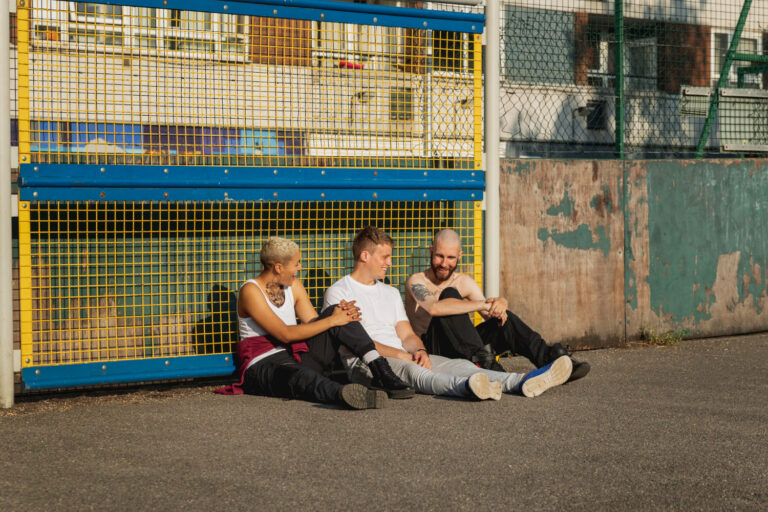Football as a Tool for Social Change
Football is more than just a sport. For many, it’s a way of life, a language that transcends borders, beliefs, and barriers. But beyond the drama of derby days, the thrill of World Cups, and the heartbreak of penalty shootouts, football holds something even greater: the power to bring about real, tangible social change. I’ve seen how the game speaks where words fail, and how its global influence can ignite conversations that matter.
Whether it’s rallying communities, breaking down societal barriers, or inspiring youth to dream bigger, football consistently proves itself as a force for good. In an increasingly fractured world, the pitch has become a place of unity, resistance, and transformation.
A Shared Language Across Cultures
One of football’s greatest strengths is its ability to unite people from different walks of life. No matter your background, the game offers a common ground. From the dusty alleys of Nairobi to the streets of Buenos Aires, kids play with makeshift balls and shared dreams. You don’t need to speak the same language, worship the same god, or hold the same political beliefs, football creates a mutual understanding without saying a word.
In areas of political conflict or social unrest, football often provides a rare neutral ground. It’s in these places where the impact of the game goes far beyond goals and trophies. People who might otherwise never interact are brought together as teammates, opponents, and fans. And that connection has the potential to outlast the final whistle.
Peacebuilding Through Football
Throughout history, there have been powerful examples of how football has contributed to peacebuilding. One of the most famous was the 1969 ceasefire during the Nigerian Civil War, declared so that both sides could watch Pelé play in Lagos. While short-lived, that moment stands as a testament to the influence of the sport.
More recently, NGOs and peace organizations have harnessed football to mediate tensions in conflict zones. Initiatives like the Football for Peace program have used the sport to build bridges in divided communities, from the Middle East to inner-city London. By encouraging dialogue and collaboration through sport, these programs help foster empathy and break cycles of mistrust.
Empowering Women and Girls
Football has traditionally been seen as a male-dominated space, but that’s changing, and quickly. Across the globe, football is empowering women and girls to challenge gender norms, build confidence, and stake a claim in spaces where they’ve long been excluded.
In countries like Afghanistan, Iran, and parts of Africa, female players risk cultural backlash or worse just to play. Yet they continue to lace up their boots, proving that football can be a powerful symbol of resistance and liberation.
The rise of the women’s game on the global stage is not just about sport, it’s about equality. Watching millions tune in to the Women’s World Cup sends a strong message: women belong on the pitch, in the boardroom, and everywhere decisions are made.
Fighting Racism and Discrimination
Racism remains one of football’s ugliest shadows. From monkey chants in stadiums to online abuse, the game has been plagued by a deep-rooted problem. But here’s the thing: football is also one of the strongest platforms for fighting it.
Campaigns like Kick It Out, No Room For Racism, and Show Racism the Red Card have used football’s global spotlight to educate fans, hold institutions accountable, and pressure governing bodies to act. More recently, players have taken the lead themselves, kneeling before matches, speaking out on social media, and using their platforms to challenge injustice.
While the road is long and the fight is far from over, football is pushing the conversation forward in ways few institutions can.
Building Futures for At-Risk Youth
For many young people, especially in low-income communities, football is more than just a pastime, it’s a lifeline. It keeps kids off the streets, provides structure, and teaches values like discipline, teamwork, and respect.
Community programs around the world use football as a tool for development. In Brazil’s favelas, Kenya’s slums, and the inner cities of the U.S. and Europe, football academies provide more than coaching, they offer education, mentorship, and opportunity.
These programs don’t just aim to create the next Messi or Mbappé. They focus on producing leaders, changemakers, and role models. And for many, the pitch becomes the first step to a better life.
Accessibility and Simplicity
Football’s global reach is no accident. The game’s simplicity and accessibility make it perfect for spreading social messages. All you need is a ball, or even a rolled-up shirt, and a little space. That ease of entry means it can reach places and people that other initiatives can’t.
This accessibility has allowed charities, governments, and grassroots organizations to deliver health education, promote gender equality, and raise awareness about issues like HIV/AIDS, sanitation, and climate change. Football, in this sense, becomes a Trojan horse, bringing important messages wrapped in fun and competition.
Footballers as Activists
Modern footballers are no longer just athletes. They’re influencers, entrepreneurs, and activists. With millions of followers and global visibility, today’s players can spark global conversations with a single tweet.
Marcus Rashford’s campaign for free school meals in the UK is a perfect example. Using his platform, he challenged government policies and won. In doing so, he showed that footballers can be more than entertainers, they can be advocates.
Others, like Sadio Mané, use their earnings to build schools and hospitals in their hometowns. Didier Drogba helped end civil war in Côte d’Ivoire through his influence. These are not isolated acts, they’re part of a broader movement of players realizing the weight of their voices.
The Role of Clubs and Governing Bodies
It’s not just players who hold the power. Clubs and football associations can play a vital role in shaping society. From promoting sustainability to running community outreach programs, the potential impact is massive.
FC Barcelona’s partnership with UNICEF and Ajax’s education programs are examples of clubs stepping up. FIFA and UEFA have also launched social responsibility initiatives, although often criticized for inconsistency or tokenism.
Still, the infrastructure is there. If more clubs prioritized people over profit, and if governing bodies took social issues as seriously as commercial ones, the ripple effect could be massive.
Football and Mental Health
In recent years, football has also stepped into another crucial conversation: mental health. The pressure on athletes is immense, but for too long, struggles were hidden behind bravado and silence.
Now, players are opening up about their battles with anxiety, depression, and burnout. Organizations are running mental health workshops in clubs and communities, using football as a way to encourage openness and support.
This shift is vital. It’s not just about elite players, it’s about fans, too. Football communities are starting to embrace vulnerability, showing that strength doesn’t mean suffering in silence.
Environmental Awareness on the Pitch
The football world is slowly waking up to its environmental footprint. From travel emissions to stadium waste, the beautiful game has a lot to answer for. But it also has the power to lead the way.
Clubs like Forest Green Rovers in England have gone fully vegan and eco-friendly. Others are experimenting with sustainable kits, carbon offsetting, and green infrastructure.
With millions watching, even small gestures, like a World Cup ad campaign on climate action, can inspire change on a global scale.
The Power of Fan Movements
Sometimes, change comes from the bottom up. Fans have become powerful agents of social change, organizing protests, boycotts, and awareness campaigns.
We’ve seen fan groups demand justice for victims of tragedies, call out racism in stadiums, and hold clubs accountable for bad behavior. The backlash against the proposed European Super League showed just how much influence supporters can wield.
Fans care. And when they come together with purpose, their voice is one of the most powerful in the sport.
From the Streets to the World Stage
Street football has always been more than just a gateway to the professional game. It’s a culture, a lifestyle, and often a stage for those without many options. Programs that support street football not only foster raw talent, they also build community.
These initiatives often go hand in hand with social outreach, offering meals, education, and even shelter. In the process, they prove that football can grow anywhere and uplift anyone.
Final Thoughts
Football’s power doesn’t lie only in the billions who follow it, or in the glitter of global tournaments. Its true power is seen in quiet revolutions: a girl standing tall on a field where she wasn’t allowed, a refugee smiling during a pickup game in a camp, a fan group challenging injustice from the terraces.
It’s seen in the lives changed, communities built, and futures rewritten through the game. Football as a tool for social change is not just an ideal, it’s a reality that plays out every day, all around the world.
And that’s what keeps me believing in the sport, long after the final whistle blows.







